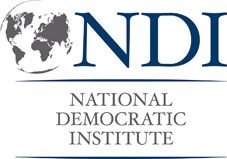
NDI Polls Say Most People Expect MPs to Serve Party or Own Interests
By Gvantsa Gabekhadze
Friday, January 19
(TBILISI)--Most recent polls of the National Democratic Institute (NDI) read that the Georgian people mostly expect lawmakers to serve their party’s interests (75 percent) and their own interests (55 percent), over those of citizens (41 percent), with results even less favorable in capital Tbilisi.
Only 24 percent of Georgians could correctly name their representative in parliament, over a 30 point drop since last year, the survey reports.
In one of parliament’s key initiatives of 2017 - changes to the constitution - only a quarter of Georgians were aware of the process.
Of those aware, only 38 percent reported that they had enough information about the amendments and just six percent believed the changes fully reflect public opinion.
“There are a number of ways members of parliament could encourage public participation and demonstrate they represent the interests of their constituents, such as increased public meetings, open office hours, public access to parliament, diverse communication strategies, outreach on legislative drafting, among other activities,” said Laura Thornton, NDI senior country director.
When asked to choose the party “closest to them,” 31 percent of Georgians identified Georgian Dream (GD), 10 percent United National Movement (UNM), four percent European Georgia, and three percent Alliance of Patriots with a very low youth support .
Results are similar to the survey where respondents were asked which party they would vote for, if parliamentary elections were held tomorrow. 27 percent selected the ruling GD, 10 percent UNM opposition, and three percent European Georgia opposition.
“It appears people, particularly youth, are still waiting for compelling messages from parties about what they would do differently, how they would deliver better outcomes. Until then, it is unlikely we will see any big shifts in party preferences,” said Thornton.
The polls say that Georgians remain concerned about the disproportionate barriers that women face in public and private life. They believe that there are still too few women in parliament and local governments, and support quota legislation to increase women’s representation in parliament (63 percent).
Georgians named domestic violence (81 percent) and child marriage (72 percent) as problems facing women in Georgia.
The Survey results reflect data collected from November 29 to December 19, through 2,298 face-to-face interviews with a nationwide representative sample (excluding occupied territories). The average margin of error is +/- 1,9%.
The poll was carried out by the Caucasus Research Resource Centres (CRRC).


